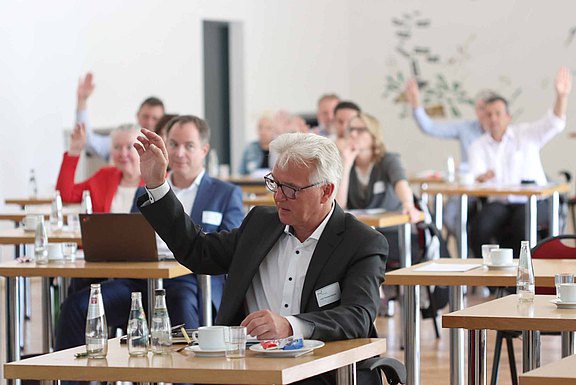At the well-attended general meeting of the TITK e.V. on June 14, institute director Benjamin Redlingshöfer was able to draw a positive balance sheet for 2022. Despite mixed general conditions, above all in research funding.
A ten-month application freeze for the Central Innovation Program for SMEs (ZIM) until August 2022 had caused irritation. Unfortunately, these have not been cleared up even today, now that only a quarter of the previous project capacity is available to small and medium-sized enterprises. "This is a stumbling block for innovations, especially in the industrial environment dominated by medium-sized companies," criticizes Redlingshöfer. "For successful technology change, many agile and highly innovative SMEs are needed." These need to be supported.
Nevertheless, the TITK can be pleased about an undiminished strong demand of the industry for research services. That this can continue to be reliably met is due to the commitment of all employees of the TITK Group. Currently, 64 research projects are being worked on at the institute, with five more planned. As every year, the heads of the four research departments presented selected projects to the members. Among them, for example, the development of a self-learning measurement system for objective odor evaluation of plastics. Or the attempt to advance passive cooling for living spaces by integrating phase change materials in plasterboard.
With the EU strategy for sustainable and circular textiles, the recycling of mixed textiles will be a central challenge in the coming months and years. TITK is currently conducting intensive research in this area and is striving to establish a demonstration and innovation center for the circular economy (DICE) with extensive investments around the particularly sustainable lyocell technology. The aim is to establish industrially suitable processes for high-quality fiber-to-fiber recycling. A project that also aroused great interest among yesterday's participants.




